10 Easy Steps to Raising World Citizens

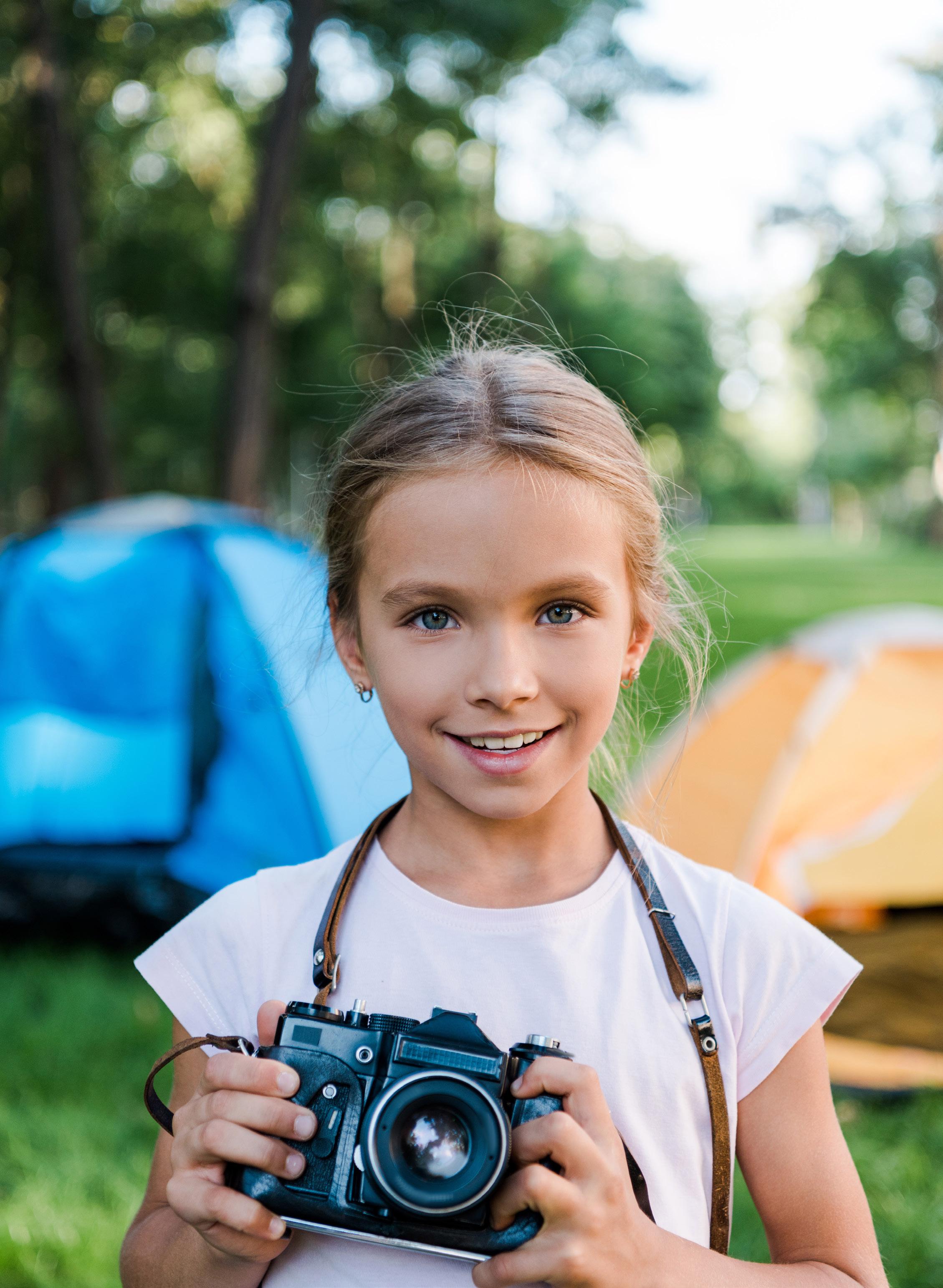
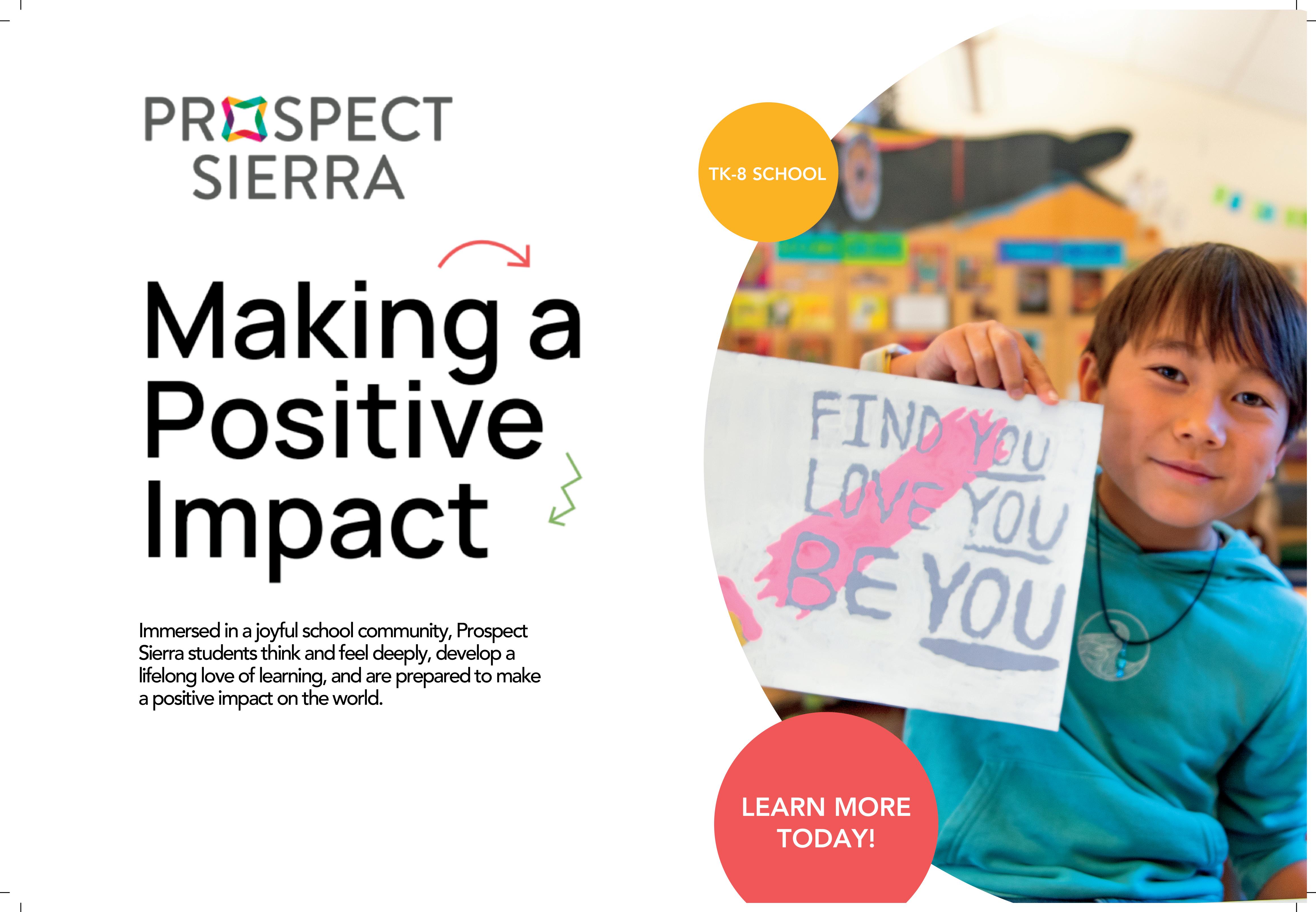


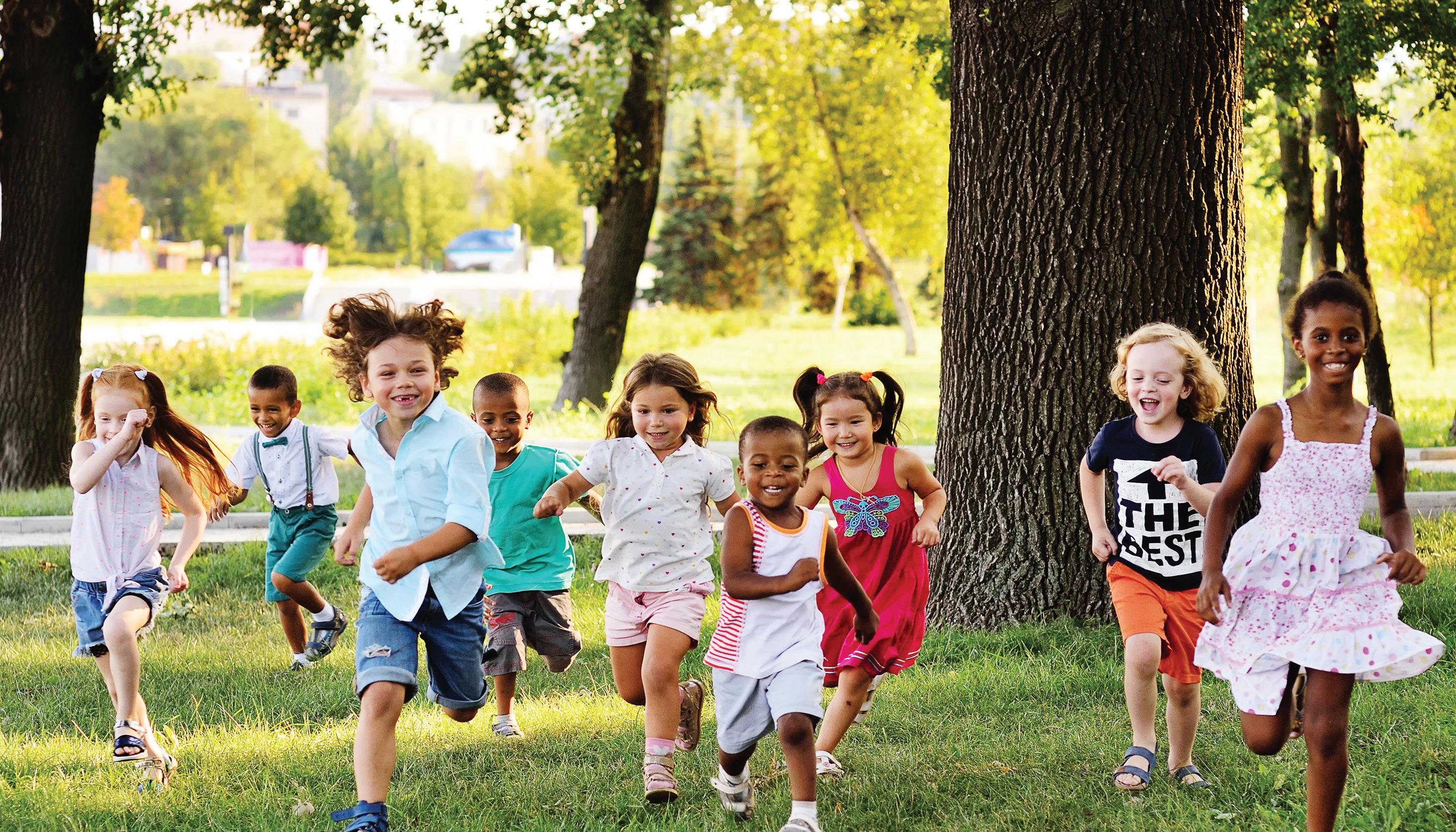

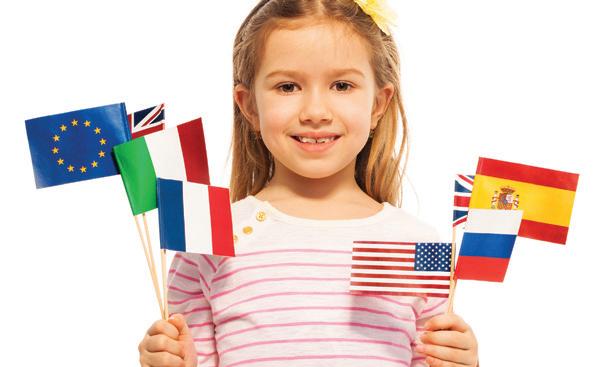
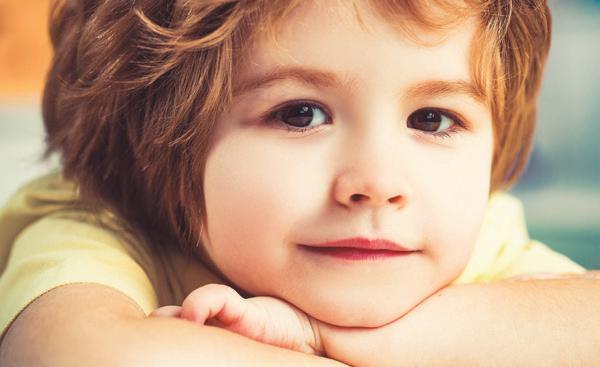



10 Easy Steps to Raising World Citizens











Our
We need your input! Each year, we poll our readers for their top picks of places to shop, dine and play – everything from preschools and schools to kids’ classes, docs and dentists, camps, museums and attractions and so much more. Head online to www.ParentsPress.com to vote for your favorites today. We’ll publish the winners in our annual Best of publication this summer.
Starts Day Camps • Overnight Camps • Enrichment Programs • Camps for Special Needs BAY AREA CAMP GUIDE




2023 EDITION WWW.PARENTSPRESS.COM 6 Parents Press | March 2023
Your Child’s Best Summer EVER 75+ Camp Listings 5 Life Lessons Learned at Camp


Join Us! CAMP & SUMMER PROGRAM VIRTUAL EXPO 2023
VIRTUAL SUMMER CAMP FAIR
























What are the most popular dog names of 2022? Well, it can depend on where you live. And, if you think you are hearing more dogs named with traditional people names you are correct. Dogs are becoming more and more to be members of the family. According to Rover.com here are the top dog names in San Francisco for 2022.
As e-scooters and e-bikes become more popular, both riders and pedestrians need to keep safe. These devices are efficient ways to navigate busy cities and towns but if not done safely, can lead to serious injuries or death. Injuries related to these devices have increased at a worrisome pace, especially in 10–14-year-olds who make up the largest group of those injured from e-scooters. It is recommended riders wear protective gear including helmets, knee pads, and elbow pads to help prevent injury from falls and collisions. Check for damage on your scooter before riding, and ensure you know how to use the brakes. This ensures you can operate your device safely and that you will not lose control of it. Be sure to alert others and ensure they see you as these devices can be silent, small, and quick. Due to the speed that e-bikes can run at injuries to pedestrians can be more severe. You should not ride alone, avoid distractions, and drive sober. Riders should remember to always follow manufacturer’s instructions such as age and weight limits as these can both impact the safety of the rider. Repeated bumps from tricks and stunts can cause damage to the device, causing fires while in operation leading to leg burns or make the device unstable, posing a risk for the rider as well as the pedestrians around them. Following these safety tips can help keep both riders and pedestrians safe.
















When you send your kids off to school, you hope they learn the skills needed to succeed in an increasingly interconnected world. While you want teachers to prepare children who can compete in the global economy, you also recognize that a global education must begin at home – and the earlier the better.
Like most parents, you are very busy. You don’t have time to learn another language or become an international studies scholar. But don’t despair. Here are 10 easy steps that can help you inspire future citizens of the world – and perhaps a future world leader.

Make sure you have a world map and display it in an area where the family usually gathers. Knowing where you live on a map brings a perspective that the world is a big place and that growing up, we only see a small part of it. When you see something on television about another place, point it out on the map. Becoming familiar with where other places are is an essential first step to understanding different views. It’s also fun.
Most of us have backgrounds that transcend borders. Talk with children about their ancestors. In most cases, you won’t have to go back very far to identify a relative from a different country with different customs. You’ll not only provide a great learning experience; you’ll also strengthen family ties.
The foods we enjoy and the menus at our favorite restaurants represent a true global melting pot. Talk about where foods came from. Did you know that ketchup comes from China, the potato originated in the Andes (near what is now Peru) or that coffee hails from Ethiopia? Children will enjoy learning about their favorite foods’ paths to their plates. The Food Museum Online is just one source with fascinating histories of many different foods.
How we view our world often depends upon how we describe our world. So help your children expand their verbal horizons. If you speak another language,






teach it to your child. But even if you don’t, use everyday situations to introduce international words and phrases. It can be as simple as telling children that in Italian “bath” becomes “bagno” or in French, “bed” becomes “lit.” Easy! English itself is a product of many cultures so when your child learns a new word identify its origin. You can use the Online Etymology Dictionary to show the origin of words like dinosaur (Greece), shampoo (India) and barbecue (Haiti).

Mark Twain wrote that travel is “fatal to prejudice, bigotry and narrow-mindedness.” Apply for passports for your children even if no immediate trip is planned. Use it when possible, but also consider visiting ethnic communities closer to home. Take virtual tours of cities and “walk” the halls of famous museums and buildings. Time For Kids provides an excellent site where children can “travel” around the world through ageappropriate news articles.
Music moves children of all ages and places. Plug into their iPods and talk about tunes that travel the globe. From country to pop, from reg gae to rap, international influences heavily shape the melodies we love. You can tell your toddler about the Wiggles’ Australian home or share with your pre-teen the British punk roots that spawned Green Day or even discuss Jamaican contributions to hip hop. Use an online radio service like Pan dora to create stations to expose your kids to African music, French songs, or even just a “world music” station for a variety of cultures.
Children are fascinated by other children. Describe what children do in other countries and how their lifestyles differ. There are many resources. Penpalworld. com, for example, connects kids with other children in the world. Also, explore ways for children to communicate with other children, through letters or email. They may even want to help other children through groups like We.org, Kids Can Make a Difference or UNICEF, the United Nations Children’s Fund.
Even young children can be introduced to basic facts about the global economy and the global production system. One simple way to do that is to connect the clothes on their backs to where they were made. Children can also trace the origin of common household items and learn how they were assembled. Locate these nations on the map and find out about their culture. More in-depth lessons might explore the lives of workers who made these items, some of whom are children.

Despite its flaws, the United Nations is the dominant international organization of our time and has united people from all over the world in many critical efforts. It also provides many great resources. For example, learn more about the U.N.’s history, its 193 member nations and important global causes. Also, introduce your children to other international organizations that link countries and cultures.
Encourage and support schools to introduce and expand global studies programs. Applaud those who champion such programs, and work to convince and persuade those who do not.
There are many ways to raise world citizens. As parents who have seen, for better and for worse, how well our own children can mimic behaviors, we’d like to offer one last bonus suggestion: Always keep in mind the power of your example. Stay curious about your world. Seek new and different perspectives. Converse with those who are different. And, perhaps most important, offer examples of ways to translate values into action. After all, tomorrow’s world citizens must not only understand their world, they may be called upon to save it. Y
Article originally provided by J. Michael Adams and Angel Carfagna and updated by Boston Parent staff.
“Why do you talk like that?” I heard the question come from behind me as I helped another child in the Sunday school class.
“It’s just the way I am.” I heard my sisterin-law wisely answer the curious boy.
My sister-in-law, Kara, was born with Cerebral Palsy. She was helping me in the classroom that day when one of the kids noticed her speech was different. Kara has been taught to answer “It’s just the way I am.” after years of questions about her differences.
Our kids have grown up around their beloved Aunt Kara and accept her as she is but there came a time when each of them has asked about Kara’s disability and why it makes her different.
Chances are, at some point, your child will meet someone at school or in the community that has disabilities. It is normal for children to have questions about people who are different, which means parents should be prepared to answer their questions in an intelligent and appropriate way.


All of us have unique gifts, personalities, and challenges. No two people are the same and this is a great thing because diversity makes life interesting and fun. While we are all different, everyone has things in common too. All people, including people with disabilities, want to have friends, be shown respect, and have the desire to be accepted. Encourage your child to embrace the differences of others and find common ground, as well. If your child is interested in a popular television show, book, toy, or game; chances are a person with special needs is too. Ask them what they love to do, I would guess they will be happy to tell you.

Some disabilities are obvious and some are not. Some people may need a walker or wheelchair to help them move around. Others may have a cognitive (thinking) disability that is not as visible. Explain in simple terms that people struggle with different things and may need a little extra help from a physical tool (like a wheelchair) or help from others. People can have impairments with sight, hearing, walking, speech, cognitive, or a variety of other things. It is important to note that just because someone is in a wheelchair, it does not mean they have a cognitive
Continued on page 14 >>>
disability. Also, disabilities are not contagious and children are not going to “catch” the disability. These things may sound obvious to adults, but children process things differently and many have these questions.


Emphasize that people with disabilities have feelings too. Name calling is hurtful, disrespectful, and is a form of bullying. People with disabilities need others to stand up for them when they cannot stand up for themselves. Encourage your child to tell an adult if kids are teasing another child. Your child can be an example to others by being kind and respectful. Parents can set an example by using positive language and behavior towards others, as well.
Kids are curious and love to ask questions. Many times, they will speak exactly what is on their mind, without thinking about whether the comments will be hurtful. This can be very embarrassing to parents. So, what do you do if your child blurts out a rude and embarrassing comment? Start by answering calmly and matter of factly. If, for example, your child says
“Why is that boy in a wheelchair?” Simply answer, “He needs it to move around. Why don’t you say hello?” If the child is reluctant, say hello to him yourself along with something like “John likes trains. Do you like trains too?” If the person accompanying the child responds, follow their lead. It is always better to treat others as you would like to be treated than to hurry away in an embarrassing situation. Later, when you are at home, you can ask your child if they have any other questions about others with disabilities and reinforce the value of treating everyone equally.
My sister-in-law, now thirty-eight years old, has been asked many questions over the years, some rude and some just curious. She has learned to handle them well because she knows that, just like anyone else she has challenges to overcome and successes to celebrate. Kara loves watching movies, dancing to music, and taking care of animals. She loves eating candy, pizza, and tacos. She is fun to be around and loves to get out and explore new places. People with disabilities are just people. Sometimes that simple fact is all kids need to know. Y
All people, including people with disabilities, want to have friends, be shown respect, and have the desire to be accepted. Encourage your child to embrace the differences of others and find common ground, as well.








Every day was hard with 5-yearold Patrick. He would purposely find ways to annoy others and just did not seem to respond to consequences. The school tested him and said that there was nothing wrong; in fact, they said he was gifted.
Another child, Latoya, was never the same after being in a car accident. She cried all night and refused to get into any car. She also seemed to be unable to play with any of her previously preferred toys for long and had frequent tantrums.
Then there was ten-year-old Maria, who didn’t seem to be making any
progress at school. She had an intellectual disability and her Individualized Education Program looked good on paper. However, she was becoming more aggressive each day and her language continued to be very limited.
Finally, Autumn, two years old, was in a fog. She stopped saying mama and dada, cried for no apparent reason and ran in circles all the time.
Developmental and behavioral concerns about your children, such as those listed above, can be extremely distressing. Of course, you would do anything for your child!

The first step is to consult your pediatrician. They will be able to rule out any possible medical problems and are more likely than a specialist to be able to see you quickly. Once a physical cause for your concerns is ruled out, your pediatrician will most likely refer you to a psychologist for an assessment. There are, however, several kinds of assessments that can be conducted.
A Comprehensive Diagnostic Assessment will include a cognitive and an adaptive assessment. It may include both norm-referenced assessments that compare children
Monday - Friday 7am - 6pm
service provided
1803 North Loop Rd. Alameda, CA 94502 Facility # 013422027
TTPreschoolalameda.org






Telephone # 510-995-5383 ext. 1336
Fax # 510-373-2241
1803 North Loop Rd | Alameda | Facility # 013422027 510-995-5383 ext. 1336 | kim.smith@bacbc.org
kim.smith@bacbc.org


to others, as well as criterion-referenced tests that compare students to themselves. A Comprehensive Diagnostic assessment may result in a diagnosis such as Autism or Attention Deficit Hyperactivity Disorder.
The psychologist or a behavior analyst may also perform a Functional Behavior Assessment. A Functional Behavior Assessment examines the functions of the behavior via direct and indirect methods helping guide the development of a Behavior Support Plan.
Another type of assessment that may be helpful is a Program Assessment. A Program Assessment includes a visit to your child’s school to determine whether their needs are being met and their Individualized Education Program is being implemented properly.
Lastly, a Neuropsychological Assessment examines executive functioning skills, attention, and memory, in addition to cognitive and adaptive skills.
To speak to the above examples, Patrick would need a Comprehensive Diagnostic Assessment and a Functional Assessment to ascertain the function of his aggressive and disruptive behavior. The fact that he is gifted intellectually does not rule out that he may be struggling with Attention Deficit Disorder with Hyperactivity, Autism, or Post Traumatic Stress Disorder.

Latoya would need a neuropsychological assessment that will examine executing functions, language, and attention to ascertain the impact of the accident on her neuropsychological functions. Typically, a complete neuropsychological assessment is conducted immediately after the accident and then repeated every six months.
Meanwhile, Maria would require a Program Assessment to determine whether her school program is meeting her needs. This assessment should include a complete review of her progress reports in addition to
a visit to her school. She may also need a Functional Assessment of her aggressive behavior at home.
Lastly, Autumn urgently needs a Comprehensive Diagnostic Assessment to rule out Autism. If she does have Autism, she will need intensive early behavior analytic intervention to be implemented as soon as possible so time is of the essence.
Whatever the assessment process holds for your learner, it is important that the instruments used are both reliable and valid, and ideally, they would be able to be utilized to track progress over time. Every child is different; therefore, no assessment process will proceed identically. Y
Mariela Vargas-Irwin, PSYD, BCBA-D, LABA obtained her doctoral degree from Rutgers University, completed her internship at Boston Children’s Hospital and did post-doctoral training at Baker Children’s Center and has over 30 years of experience working with children with autism and other developmental disorders. For over 21 years, Vargas-Irwin has been a part of Applied Behavioral Learning Services team in Wellesley and is currently the Executive Director of the organization. www.ablspartners.org
The first step is to consult your pediatrician. They will be able to rule out any possible medical problems and are more likely than a specialist to be able to see you quickly. Once a physical cause for your concerns is ruled out, your pediatrician will most likely refer you to a psychologist for an assessment.
 By Cynthia Kane
By Cynthia Kane
As a new grandparent, all you may want to do is get your hands on that new baby. You’ll want to hold her in your arms and gaze down at her for hours, expound on which family member she resembles most, and tell tales about what it was like back in your day when you had your first little one.


WHATEVER YOU DO, DON’T DO IT!
Continued on page 22 >>>
New parents are needy, exhausted, and anxious to do everything right for their baby. The best way to show your love and support is to focus on them and their new role.

Try to keep in mind what the new parent is going through. If this is their first baby, the emotional and intellectual transition is tremendous. When you first arrive at a home where a newborn has just joined the family, the parents may feel so overwhelmed with their new roles and responsibilities that they may not be able to tell you what they need or want.
If you are a grandparent who will be making regular visits during the first few weeks of the baby’s life, it can help to have a little meeting with the parents-to-be a few weeks before the due date, and get to know what they imagine that they may need postnatally. A little preparation goes a long way and can make a real difference for the new parents.
• Have a key to the front door to avoid ringing the doorbell;
• Learn where the lights are, how the dishwasher and washer/dryer work, where the trash goes, etc.;
• Know where the cleaning supplies are kept;
• Make a few favorite meals you can put in the freezer;
• Have fresh fruit and cut veggies available in the fridge;
• Keep the new mom’s favorite healthy snacks nearby in a big bowl;
• Make sure the new mom has a large water bottle nearby that you can keep filled;
• Ask what the parents might need for grocery shopping, pet care;
• Keep a phone charger, laptop, pen and paper near the new mom at all times;
• Keep Kleenex, hand sanitizer, and masks handy;
• Find out the preferences for visitors, and how you can help guide guests;
• Tell the new parents they are doing a great job.
• Expect to hold the baby for more than a few minutes. Parents are bonding;
• Talk about who the baby resembles other than in passing;
• Recount your own labor stories or new parent experiences;
• Ask parents to give detailed instructions or make multiple decisions for you;
• Stay too long or expect to be treated as a guest;
• Tell the new parents what you think they should be doing about ANYTHING at this point;
• Comment on the choice of breast-feeding or bottle-feeding;
• Make anything about you or your new status as grandparent, other than to express joy.
New parents are needy, exhausted, and anxious to do everything right for their baby. The best way to show your love and support is to focus on them and their new role. Do what you can to help the birthing parent rest and recover physically, and reinforce the notion that the couple is doing a great job.

The parents’ stress levels can be heightened if there are other small children in the home, so any time that you can occupy the older sibs is helpful. Don’t assume anything is routine, even for an experienced parent.
Grandparents can go wrong even when they have the best intentions. If you are able to keep the focus off of yourself and onto the new little family, you strengthen the parents’ confidence and encourage their belief that they are good at their role. These Do’s & Don’ts can help you help your adult children get off to a great start raising their family. Y
Cynthia Kane is a board-certified, licensed genetic counselor with 25 years of clinical experience, and a certified postpartum doula. Cynthia graduated from UC Berkeley in 1982 with a Bachelor’s degree in Human Physiology and earned a Master’s degree in Health and Medical Sciences in 1993. Cynthia has specialized in counseling and support for families facing a variety of challenges including chronic medical issues, physical and developmental disabilities, and neonatal loss. A grandmother, Cynthia has a certificate in Grandfamily Leadership, now works exclusively with grandparents and their families.

We limit each summer camp session to 12-15 students, so that each student receives individual attention. Making art develops problem-solving skills, encourages creativity, and develops self-confidence. Our goal is to provide the materials, structure, and guidance to spark creativity in each child, allow them to explore and investigate their own ideas, and have lots of fun in the process.
Schedule for Summer Art Camp 2023
Week 1: June 12-16 Drawing
Week 2: June 19-23 Paint: Color
Week 3: June 26-June 30 Animals & Imaginary Creatures
Week 4: July 3-7 People & Faces
Week 5: July 10-14 Drawing
Week 6: July 17-21 Landscape, Still Life & Oceans
Week 7: July 24-July 28 Animals & Imaginary Creatures
Week 8: July 31-August 4 Paint: Color
Week 9: August 7-11 Landscape, Still Life & Oceans
Week 10: August 14-18 Drawing
Week 11: August 21-25 Animals & Imaginary Creatures
All art materials are safe and non-toxic. Ages 5-13, regular campers, and 14-17, counselors in training. Camp options are from 8:30am to 4:30pm each day, or 9am to 3pm each day, depending on different families needs. On Friday, camp ends at 3pm. Daylong Immersion Days are also available. Questions?
Our camp is located at the Marigold School, on 62nd St, in Oakland between California and Market.
Please call 510-604-0036 or email Bethpaints@gmail.com Register at www.DancingPaintBrushStudio.com
Your camper will love all the fun-filled traditions of overnight CAMP! Campers will enjoy Canoeing, Crawdad Fishing, Hiking, Archery, Volleyball, Swimming, Beach Fun at Lake Tahoe, Skits, Arts & Crafts, Tye Dying Shirts, and Campfires with S’mores.





Roundtrip bus transportation from Concord to South Lake Tahoe included.
Ages: 9–13 (at the time of camp)
New Camper Registration Opens March 13, 2023
FriendsOfCampConcord.org/Youth-Camp
Space is limited to 149 campers. To register: FriendsOfCampConcord.org/Youth-Camp or contact us at: YouthCamp@FriendsOfCampConcord.org

Summer camp provide an environment in which encourages children to be lifelong learners, critical thinkers, action-takers, and global citizens. Children can begin putting the real-world pieces together that they have learned throughout the school year and start applying those principles in a fun and engaging manner during summer. A STEAM (science, technology, engineering, arts & math) approach summer camp allows your child to explore different areas of study and provides them with an understanding of how each subject is connected. Here are five reasons why you should consider a STEAM focused summer camp for your child.
1 2
The dreaded “summer learning lose” has plagued classroom teachers for decades, and often contributes to wasted instructional time come Fall. A growing body of research indicates that summer programs can help students retain and build upon their learning from the previous year, especially if those programs are specifically aimed at enrichment. Camps that focus on arts and science enrichment offer a powerful combination of interactive, individualized instruction to provide children with an opportunity for focused reading, practical mathematics, as well as the lively interaction that children crave when school is out for the summer.
Summer is a great time to encourage your children to pursue new interests that they may not normally be attracted to, including the sciences. A study of high school and university age students enrolled in a summer science internship program revealed that



the majority of the students reported extracurricular exposure to the STEAM fields had encouraged their interest in science.
Actively applying science concepts outside of the classroom seems to have a lasting effect on children, and summer camp is a great place for them to start exploring in a fun, supportive environment.

While summer camp may seem like the last place that children should be thinking about their career goals, it’s never too early to give them enrichment experiences in the STEAM fields to ignite the kind of curiosity that often leads to a fulfilling and meaningful work life. A two-year study of middle school students across the country revealed that “students who once participated in science summer camps were more likely to later report a career interest in the science and engineering fields”. It’s clear that enrolling your child in a STEAM focused camp is an ideal way to provide them more options as they start considering their path through high school, college, and beyond.

Summer camp can be a nice way for children to experience the joy of academic achievement in a more supportive, low stakes environment. A few weeks at camp can give your child the chance to feel safer and more supported while learning, which can, in turn, lead them to feel more confident and take on greater academic challenges once the school year resumes in fall.
Quality arts instruction, especially when coupled with the sciences, gives children the opportunity to play, create, and learn in non- traditional ways that emphasize individual expression as well as real- world collaboration skills. Giving children the opportunity to learn how to create 3D drawings or movies isn’t just fun, it encourages children to use their “big picture” visioning skills to imagine new possibilities and outcomes.
STEAM summer camps offer children the chance to learn, grow, and explore new modes of thinking and doing. A STEAM summer program can not only boost academic performance during the school year, it can also build confidence, creativity, resiliency, and ideally, will be fun! Y
Giving children the opportunity to learn how to create 3D drawings or movies isn’t just fun, it encourages children to use their “big picture” visioning skills to imagine new possibilities and outcomes.





Day Camp • 510-893-3132
Ages 9 & up
The Academy at Oakland Ballet Company offers classical ballet training with one of the leading Bay Area professional dance companies. The Academy at Oakland Ballet’s focus is on developing the whole dancer through classes that not only teach ballet technique, but explore artistic expression and build self-confidence - all in a fun and nurturing, yet challenging class environment. https://oaklandballet. org/education/theacademyatobc/ summer-intensive/
Day Camp • 510-337-1929
Ages 4-11
No experience necessary! In addition to a daily dance class, children learn about and watch a different famous classical ballet each week. They explore their own creativity through exercise in movement concepts. Students also learn valuable lessons about anatomy, nutrition, dance history and vocabulary. https://alamedaballet.com
Day Camp • 510-981-5140

Ages 5-13
Berkeley Day Camp is one of the best traditional outdoor day camps in the Bay Area. It is a fun, engaging and exciting experience as campers explore shoreline habitats, canoe, make arts and crafts and play at the acclaimed Adventure Playground and go on special adventures. Many of our former campers are now part of our awesome team of staff, providing a safe environment for children to spend their summer days at play. https://berkeleyca.gov/communityrecreation/parks-recreation/camps/ berkeley-day-camp
Overnight & Family Camps • 510-981-5140
Ages 7-14
Escape to the Sierra Nevada with the City of Berkeley: we have summer sleepaway camps for youth, families, adults, and seniors. You can swim in a lake, hike in the forest, enjoy meals cooked for you, or let your children explore the wonders of
the high sierras with counselors. When you join us at either Echo Lake Camp (near South Lake Tahoe) or Tuolumne Camp (near Yosemite), you can participate in traditions shared by generations of Berkeleyans, or create new ones of your own with family and friends. Households and individuals of all backgrounds are welcome to share in Berkeley’s rich diversity at camp. https://berkeleyca.gov/ community-recreation/parks-recreation/ camps/overnight-camps
BISHOP O’DOWD’S SUMMER ACADEMY (OAKLAND)
Day Camp • 510-577-9100
Grades 6-9
At O’Dowd’s Summer Academy, students develop social-emotional, creative, and intellectual skills, all while getting to know the O’Dowd campus. We offer a flexible morning and afternoon schedule, and free lunch for students who enroll in 3 or more classes.For grades 6-9, Summer Academy offers robust academic and enrichment courses, from Math and Spanish, to Drama and Gardening. Held on O’Dowd’s friendly campus, with small classes, hands-on learning, and











Dates: June 20 to August 4 2023
Early Bird Rates Available Until April 15th!
fun activities. Come be a Dragon this summer! https:// www.bishopodowd.org/ summer-academy

Day Camp • 510-604-0036
Ages 5-17
Making art develops problemsolving skills, encourages creativity, and develops self-confidence. Our goal is to provide the materials, structure, and guidance to spark creativity in each child, allow them to explore and investigate their own ideas, and have lots of fun in the process! Our philosophy is to encourage students to explore and express themselves with an emphasis on practice over product, without judgment, comparison, or criticism. https://dancingpaintbrushstudio.com/
Overnight Camp • 925-232-1530
Ages 9-13, CIT 14-17
At Youth Camp at Camp Concord, campers will experience a break from the digital world with time-worn traditions of camping in the Sierra Nevada as kids canoe, kayak, go crawdad fishing, hike, swim, play volleyball, archery, and do arts & crafts, including creating their own tie-dyed t-shirt. Campers have fun at the beach around majestic Lake Tahoe, not to mention enjoying the magic of storytime around the campfire under the starry night sky. Boundless days of activity and exploration await your youth 9-13 years at Camp Concord, where memories are made to last a lifetime. https:// friendsofcampconcord.org/ youth-camp/
Day Camp • 510-839-5777
Ages 6-13
Join the Junior Center of Art and Science this summer for one-week and two-week day camps that explore art, design, and technology on the
beautiful Lake Merritt! http:// juniorcenter.org/summercamp
Day Camp • 510-549-3867
Grades 1-6
We are pleased to announce the return of Le Camp D’Été for summer 2023! Our camps are open to the public for rising G1 to G6 students while our mini-camp (preschool and entering K) will still be for incoming and current EB students only. In addition to our super fun-filled French Immersion Camp we will also be offering Riveropolis Maker Camp, a two week maker camp (English Only), for rising G3 to G6 students. https://www. lecampdete.com

LOCATIONS)
Day Camp • 415-334-3333
PreK-8th Grade
Basketball, All-Sports, & Volleyball Summer Camp. Legarza programs give children the knowledge and motivation they need to achieve their personal best in sport and life. Over 400,000 of the Bay Area’s youth have experienced and benefitted from our 33-year, proven and tested system. Our program is tailored to help your young athlete succeed on and off the court in a safe, professional and encouraging environment of learning and fun.
http://www.legarzasports. org/
Day & Virtual Camps • 510-438-9702
Ages 3-12
We offer kids full-day and half-day camp experiences that are sure to entertain and delight! They will be wowed by green glowing liquid, messages written in secret code, autonomous robots, and mystery substances that change from solid to liquid in seconds. There’s something for everyone!









We are also offering interactive virtual camps! Kits will be delivered to you! Early-bird discount ends soon. Material fee and delivery charges included. https://thebayarea. madscience.org/parentscamps.aspx
MERRYHILL SCHOOL SUMMER CAMPS (MILPITAS & SAN JOSE)
Day Camps • 855-722-8938


Grades Pre-K - 8
At our camp, every activity is a chance to learn, grow, and have fun. Whether it’s scoring a goal in soccer, setting off a rocket, or making new friends, your child will enjoy awesome experiences here. Watch their confidence grow as they conquer new challenges and pursue new interests. https:// www.merryhillschool.com/ camp/summer-camp/
& NEWARK)
Summer Program • 510-659-6000
Grades 1- 12
Ohlone for Kids & Teens
(OFK) offers a unique blend of academic and special interest enrichment classes for students in grades 1-12. Students will be engaging in hands-on learning activities that stimulate their interest and growth. Students can participate in a variety of classes including Arts, Performing & Language Arts, English, Math, Reading, LEGO Robotics, Electronics, Engineering, Science, Social Studies, and SAT/College Preparation. https://www. ohlone.edu/ohloneforkids
ONE GENERATION CAMP (BERKELEY)
Day Camp • 808-769-7664
Ages 5-10, CIT 11-18
An outdoor music and dance camp for ages 5-10, and a CIT program for ages 11-18:






West African Dance and Hand Drumming, Cuban Dance, Body Percussion, Brazilian Capoeira, and hiking! Kindness, community, and culture through music and dance. Featuring some of the best music and dance teachers in the Bay Area! Through music and dance, incorporated with games, outdoor exploration and hiking, our children learn about kindness, community, and culture. https://www. onegenerationcamp.org/
Day Camp • 650-260-3805

Ages 2-17
Open Minds is a servant leadership organization. We co-create programs with families and students to meet the right balance of challenge and support. Open Minds space is the home of active and vibrant fun. There’s a lot to love at OMS, and not just the warped walls, balance beams, and
jump mats of our epic Ninja Warrior gym. Our dedicated, kind and experienced staff are the backbone of Open Minds and are the reason families come back again and again. Kids of all ages and (dis) abilities are welcome to sign up for camps on a daily or weekly basis, with early drop off and extended care options available. Siblings join programs free of charge to meet the needs of larger families in the Bay Area. Want to have your child spend the day with us in between seasonal camps? No problem! We offer Day Passes Monday-Friday year-round, drop in open gym times, and facility rentals for private birthday and events. Camps and Day Passes are just some of the programs offered through Open Mind’s services. https://www.openmindschool. org
berkeleyca.gov
berkeleyca.gov
(Search: Berkeley Day Camp)
(Search: Berkeley Day Camp)
(Search: Overnight Camps)
Day Camp and Hybrid Options

415-279-1411
Ages 11-17
Ripe Fruit Writing one-week summer camps bring together 8-10 students to gain confidence in their writing voice, aerobicize their imaginations, and develop strong writing skills using exciting and imaginative writing exercises in a safe space. Voted Best Teen Focused camp in SF by Parents Press in 2015. Middle School camps run from 9am12:30pm M-F. High School camps run from 2:30-6pm. Camps take place on the bottom floor of a 120-year-old Edwardian in Dolores Heights and are taught by awardwinning author, Leslie Kirk Campbell, who has over 30 years of experience teaching creative writing to students of all ages. All camps are offered in person. A few are offered as hybrid camps for outof-towners. Healthy snacks included. Students love these
camps. Many return summer after summer.http://www. ripefruitwriting.com/classes/ teen-writing-camps/ SAINT
Day Camp • 408-867-3785


Ages: 5-14
Do you want to learn how We foster personal growth for children by providing them a fun, safe, and educational environment on our 10-acre campus where they have the opportunity to make lasting memories and new friends.



Whether your child is a budding scientist, a future artist, or a sports enthusiast, the Saint Andrew’s Summer Camp is the perfect place for them to spend their summer. Our programs are designed to be engaging, educational, and most of all, fun. So sign up now and give your child an unforgettable summer camp experience! https://www.standrews.org/summer-camp


Day Camp and Virtual Programs

415-517-6997
Ages 11-18
Join us this summer for a variety of programs that explore all angles of the industry and artistry of film. All in-person camps will take place at the Christopher B. Smith Rafael Film Center. All online camps will be hosted on our CFI Education Online platform and open to students anywhere in the U.S. Times listed are Pacific Time Zone. Need-based scholarships are available for all programs. http://cfieducation.org/ summerfilm
Day Camp • 408-248-2464
Grades Jr. K - 3rd
Our summer camps provide each child with the opportunity to fill his or her summer days with diverse experiences and activities. Creative play, arts & crafts, academic review, sports, and picnics, will provide all students with a memorable summer. https:// www.actiondayprimaryplus. com/summer-camp
Day Camp • 650-543-4560
Ages 8-13
Summer at Athena Academy is offering two, week-long skills programs, June 26 – June 30 and July 24 - July 28 for dyslexic and twice-exceptional students with language based challenges, grades 1-8. Our program is specifically designed, utilizing Athena Academy’s unique teaching approach, to help our students build an understanding of the way they learn and grow their confidence. https://athenaacademy.org/ summer-camp/
Day Camp, Virtual Camp & Summer Programs
Grades TK-5 • 510-767-0898
Grades 6-12 • 510-878-4464
Join Us For A Summer Full Of Possibilities!At Basis summer camp, every activity is a chance to learn, grow, and have fun. Whether it’s scoring a goal in soccer, setting off a rocket, or making new friends, your child will enjoy awesome experiences here. Watch their confidence grow as they conquer new challenges and pursue new interests.
It’s not just a camp. It’s an EXPERIENCE. https://fremont.basisindependent.com/ student-life/summer-program/
Day Camp, Virtual Camp & Summer Programs • 408-351-6159
Grades TK - 12
Join Us For A Summer Full Of Possibilities!At Basis summer camp, every activity is a chance to learn, grow, and have fun. Whether it’s scoring a goal in soccer, setting off a rocket, or making new friends, your child will enjoy awesome experiences here. Watch their confidence grow as they conquer new challenges and pursue new interests.
It’s not just a camp. It’s an EXPERIENCE. https://siliconvalley.basisindependent.com/ student-life/summer-program/
Day Camp • 408-244-4073
Grades: Preschool - Middle School
Summer@Stratford is back with our academic camp favorites and all NEW day camp programs! This summer, children will have a wide range of options to explore new interests, discover a world of wonder, and enjoy a summer to remember at Stratford!
https://www.stratfordschools.com/summer
Day Camp • 510-325-6498
Ages 10-18
Summer Conservatory is an ensemble based program for training in singing, acting, movement, theater and music history and theory, languages, and professionalism taught by industry professionals on the campus of San Francisco Opera. Students ages 10-18 participate in masterclasses and rehearsals that focus on the individual and ensemble. The program culminates in an opera performance at the end of the three week program. https://www.sfopera.com/ summerconservatory
Day Camp • 510-642-5132
Entering 1st-6th Grades
Explore, discover, and invent in Summer Camps at The Lawrence Hall of Science, UC Berkeley’s public science center! Campers become budding scientists, engineers, astronauts, and more in our exciting hands-on science camps for 1st–6th grade students. https://lawrencehallofscience.org/visitors/ summer-camps/
Day Camp • 415-453-1000 x19
Ages 7-11
WildCare’s Summer Nature Programs provide young people with an unforgettable wildlife and nature experience! This summer we are offering Nature Hikes and Virtual Wildlife Classes.
https://discoverwildcare.org/ summer-nature-programming/
Sleepaway Camp • 925-671-3006
Ages 8-13
Youth Camp at Camp Concord is a weeklong overnight camp
in South Lake Tahoe for kids 8-13. Enjoy the outdoors with detachment from the digital world. Your child will love all the fun-filled traditions of overnight CAMP! Over the 5 days/4 nights at Camp Concord in South Lake Tahoe, campers Agesd 8-13 will enjoy Canoeing, Crawdad Fishing, Hiking, Archery, Volleyball, Swimming, Beach Fun at Lake Tahoe, Skits, Arts & Crafts, Tye Dying Shirts, and Campfires with S’mores. Your child will be disconnected from the digital world (although texting is possible with some providers). Roundtrip bus transportation from Concord to South Lake Tahoe is included, plus all meals, a Camp Concord tee-shirt for tye dying, and all activities.
https://friendsofcampconcord.org/youth-camp/
Day Camp • 510-595-5514
Grades 7-12
Summer Musical Theater Workshops for 7th to 12th grade. YMTC is offering 3 in-person workshops this summer appropriate for 7th grade to 12th grade students at its Aquatic Park campus in Berkeley. Class size currently limited to 14 students.
http://www.ymtcbayarea. org/ Y
An outdoor music and dance camp for children ages 5-10 plus Counselors in Training


Through music and dance we learn about kindness, community, and culture.
Featuring:
West African Hand Drumming
West African Dance
Brazilian Capoeira


Cuban Dance
Body Percussion
Storytelling, Hiking, and More
Hiking and more…!
